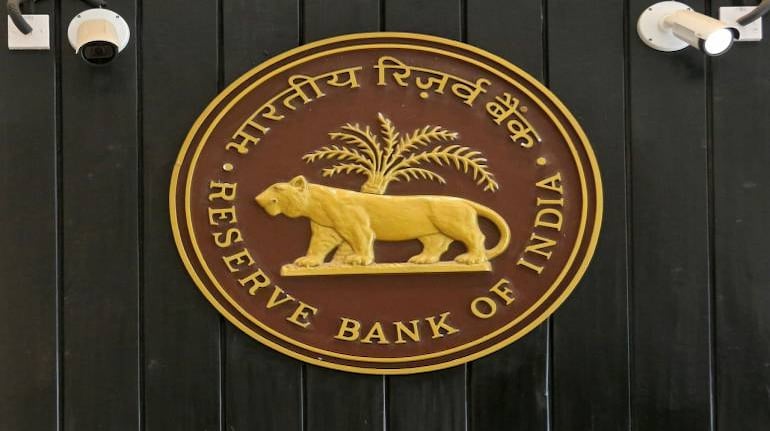



The Reserve Bank of India’s handling of the failure of financial institutions has dominated the talk around the country’s banking sector in recent years. While the regulator swung into action, albeit a bit late, to hammer out rescue deals for troubled Yes Bank and Lakshmi Vilas Bank (LVB), the resolution at Punjab and Maharashtra Cooperative Bank (PMC), a well-known multi-state cooperative bank in Maharashtra that plunged into a crisis in late 2019, is a pending task. The RBI also didn’t see the trouble that was brewing at IL&FS and Dewan Housing.
The fact remains that under the RBI’s watch, four financial institutions met with a crisis situation in the last two years—IL&FS, Dewan Housing and Finance Corporation, LVB and Yes Bank. The reasons for crisis in each of these institutions were different but all of these companies were under the watch of the regulation and supervision of the RBI.
The regulator conducted periodical scrutiny of these companies just like all other regulated financial entities but didn’t see what was coming. The signs of wrongdoings and financial regularities were detected, in almost all these cases, at the final stages. By then, it was too late.
Could the regulator have acted earlier?
There is a section of analysts and banking industry experts who believe that had the RBI acted earlier, the cost of bail-outs and financial loss to a certain category of investors would have been lower.
For instance, the Yes Bank bail-out helped to protect the interest of depositors and shareholders but resulted in massive wealth erosion for the additional Tier 1 bond-holders of the bank, as Rs8,400-crore worth AT1 bonds were written off as part of the reconstruction scheme. Similarly, in the LVB-DBS merger deal, the RBI could save depositors but the entire paid-up equity capital of the bank was written off. Who will compensate these investors?

One can argue these actions were as per rules and necessary to pull off major bank rescues but the problems at Yes and LVB didn’t happen overnight.
In the case of Yes Bank, the signs of major regulatory rule violations were visible from 2017-18. It was an open secret in the banking industry that the bank promoter was riding a tiger, embracing risky corporate loans and engaging in rampant careless lending aiming for personal gains. Back in 2015, a prominent research house had published a report forecasting major asset-quality issues. Except the regulator, everyone else seemed to know the problem.
The recent developments at Kerala-based Dhanlaxmi Bank are even more intriguing. At the Annual General Meeting of the bank on September 30, 2020, a few prominent shareholders voted out CEO Sunil Gurbaxani, whose appointment was approved by the Reserve Bank of India for a three-year term. It was probably the first instance where an RBI-appointed CEO of a private bank was ousted by the shareholders. The RBI has now asked the bank to get the shareholders’ approval first before taking the name of the next CEO to the regulator for the final approval. Clearly, the central bank is on the backfoot in this case.
The Dhanlaxmi case showed that RBI’s appointments could be cancelled by the shareholders and the regulator was not above shareholders. There are no proven charges of wrongdoings against Gurbaxani. In multiple interviews, including to Moneycontrol, the former CEO has contested his sacking and has sought a probe into the manner and reasons leading to his ouster. The regulator has, to date, not clarified the case. It has simply asked the bank to get the name of the new CEO vetted by the shareholders first. This case sets a precedent for the appointment of CEOs in other private banks too.
RBI-Kotak episode is another case where the regulator was dragged to a compromise formula by a bank promoter. According to the RBI norms, Kotak had to pare promoter stake below 20 percent before December 31, 2018 from around 30 percent. In August 2018, the bank announced the completion of the perpetual noncumulative preference share issue (PNCPS), which it interpreted as cutting the promoter stake to 19.7 percent.
The bank claimed it was complying with the RBI’s licensing norms but the regulator didn’t buy it. The regulator said the preference share allotment route wasn’t sufficient to meet the promoter dilution rule requirement. But the bank’s legal argument was PNCPS was part of the paid-up capital. With the impasse continuing and the deadline for stake dilution fast approaching, KMB finally decided to move the Bombay High Court.
In January, the RBI let KMB retain the 26 percent promoter stake with some riders.
The RBI let the promoters, Uday Kotak and family, retain a 26 percent stake but capped the voting rights at 15 percent by April. KMB withdrew the case and some interpreted this as a win for Uday Kotak. In June, Kotak sold 5.6 crore shares for more than Rs 6,900 crore in a block deal, bringing down his stake to 26.1 percent, inching closer to the RBI’s stipulated level.
The RBI is a well-respected regulator that has won praise for the way it has guided the Indian banking sector through multiple financial crises. The central bank’s timely response to the COVID-19 crisis is commendable. Yet, some of the above-mentioned instances and events raise a question mark on the RBI’s role and response time on critical banking sector issues. The RBI is answerable to the government on its actions but in reality, there is no evaluation of the central bank’s performance.
Weak regulation, which contributed to the collapse of institutions that resulted in huge losses to the investors who trusted the central bank, exposes the weak link in RBI’s supervision. The events of 2020 are a reminder why the RBI needs to be more accountable and raises questions about its efficiency and ability to supervise financial institutions dealing with public money.
(Banking Central is a weekly column that keeps a close watch and connects the dots about the sector's most important events for readers.)
Discover the latest Business News, Sensex, and Nifty updates. Obtain Personal Finance insights, tax queries, and expert opinions on Moneycontrol or download the Moneycontrol App to stay updated!
Find the best of Al News in one place, specially curated for you every weekend.
Stay on top of the latest tech trends and biggest startup news.